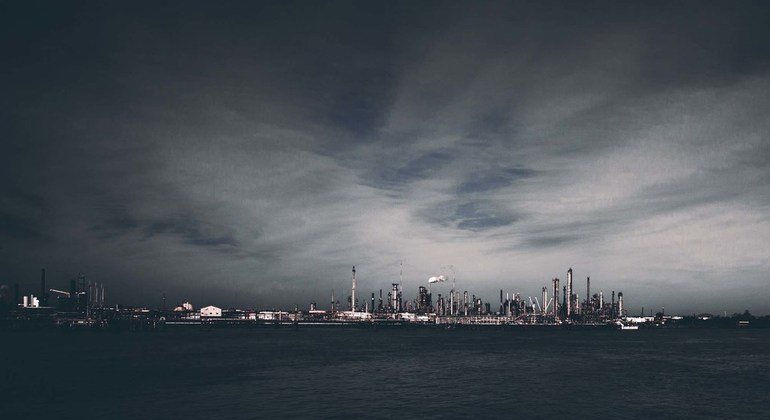Originally dubbed “Plantation Country”, Cancer Alley, which is located in the southern state of Louisiana along the lower Mississippi River where enslaved Africans were forced to labour, serves as an industrial hub, with nearly 150 oil refineries, plastics plants and chemical facilities.
The ever-widening corridor of petrochemical plants has not only polluted the surrounding water and air, but also subjected the mostly African American residents in St. James Parish to cancer, respiratory diseases and other health problems.
“This form of environmental racism poses serious and disproportionate threats to the enjoyment of several human rights of its largely African American residents, including the right to equality and non-discrimination, the right to life, the right to health, right to an adequate standard of living and cultural rights”, the experts said.
Government failure
According to the experts, federal environmental regulations have failed to protect people residing in “Cancer Alley”.
In 2018, St. James Parish Council approved the industrialization of toxic chemical development through the “Sunshine Project” – a subsidiary company of Formosa Plastics Group that would create one of the world’s largest plastics facilities – and the building of two methanol complexes by other manufacturers.
Formosa Plastics’ petrochemical complex alone will more than double the cancer risks in St. James Parish affecting disproportionately African American residents, flagged the experts.
A grim prospect
According to data from the Environmental Protection Agency’s National Air Toxic Assessment map, the cancer risks in predominantly African American Districts in St James Parish could be at 104 and 105 cases per million, while those threats in predominantly white districts range from 60 to 75 per million.
The experts said that the new petrochemical complexes would exacerbate environmental pollution and disproportionately effect African American communities rights to life, health, and an adequate standard of living.
The combined emissions of carbon dioxide equivalent (CO2e) per year in a single parish could exceed those of 113 countries, they said.
Cultural threat
The UN experts also sounded the alarm over possible violations of cultural rights, as at least four ancestral burial grounds are at serious risk of being destroyed by the planned construction.
“The African American descendants of the enslaved people who once worked the land are today the primary victims of deadly environmental pollution that these petrochemical plants in their neighbourhoods have caused”, they said.
“We call on the United States and St. James Parish to recognize and pay reparations for the centuries of harm to Afro-descendants rooted in slavery and colonialism.”
A ray of hope
The experts welcomed President Joe Biden’s Executive Order, signed in January, on Protecting Public Health and the Environment and Restoring Science to Tackle the Climate Crisis and the pledge of the US Government to listen to science, strengthen clean air and water protections, and hold polluters accountable for their actions.
While signing the Order, the President raised hopes by specifically citing Cancer Alley and commenting that “environmental justice will be at the centre of all we do when it comes to addressing the disproportionate health and environmental and economic impacts on communities of colour”.
Delivering justice
The experts called on the government to deliver environmental justice in communities all across America, starting with St James Parish, while upholding that corporations also bear responsibility and should conduct environmental and human rights impact assessments as part of the due diligence process.
Click here for the names of the experts.
Independent experts are appointed by the Geneva-based UN Human Rights Council to examine and report back on a specific human rights theme or a country situation. They are not UN staff, nor are they paid for their work.



